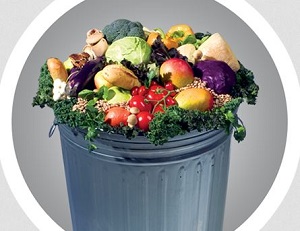
Have you ever tried the curved cucumbers? or an orange differently shaped than others? Do you know they are actually perfect for human consumption? Even if you know they are, would you give it a try? How many of us know what a ‘Best Before Date’ (BBD) on food labels really means? A survey carried out during the Milan Expo 2015 found out that only 47 percent of the consumers knew the correct meaning of ‘Best Before Date’. These questions reflect how the consumers behave when they choose what to buy or not – effectively one of the causes of food loss or waste.
Nearly 1.3 billion tonnes of food are wasted every year while almost 1 billion people suffer from hunger globally. According to the latest estimates, the economic loss is estimated to be about USD 940 billion per year. An analysis by the Champions 12.3 Group reveals that if ‘food loss and waste were a country’, the greenhouse emitted from it would make it ‘the third-largest greenhouse gas emitter’ in the world. Tackling food loss could result potentially result in a triple-win: reducing hunger with the current production of food, greater income for producers and traders, and finally a positive impact on the environment.
UNECE together with FAO are therefore bringing together key players of the food industry, campaigners, international organizations and renowned experts at the Palais des Nations in Geneva on 10 November to identify the challenges and potential areas of interventions. Speakers include representatives from large supermarkets like Tesco and Albert Heijn, cooperatives like l'Union Maraîchère de Genève (UMG), representative from Champions 12.3 and experts from UNECE, FAO and UNEP and key note speech from Feedback Global, established by Tristram Stuart.
Food loss linked to strict quality requirements from the supermarkets turns itself into a prospect for the private sector as some retailers are already tapping the potential markets of ugly fruits or wonky vegetables in Europe. Take for example the curved cucumbers. They are difficult to put in a box and they bruise when transported long distances but they are perfectly edible. The question therefore is - ‘is there a local market for curved cucumbers?’, “how do producers react in this new scenario”, “what could be the impact on farmers and their revenues worldwide” to or ‘how can we better inform the consumers that these cucumbers are perfectly edible?’. All these questions will be discussed during the event.
The event welcomes also your opinion and invites everyone with an interest in Food Loss to take part. Online registration is still open. Members of the public can participate and ask questions via the UNECE Facebook account as the event will be broadcasted live from 10 am on 10 November.
For more information, write to [email protected] or [email protected] or call 022-917-3227.
Follow the event in twitter or facebook.

